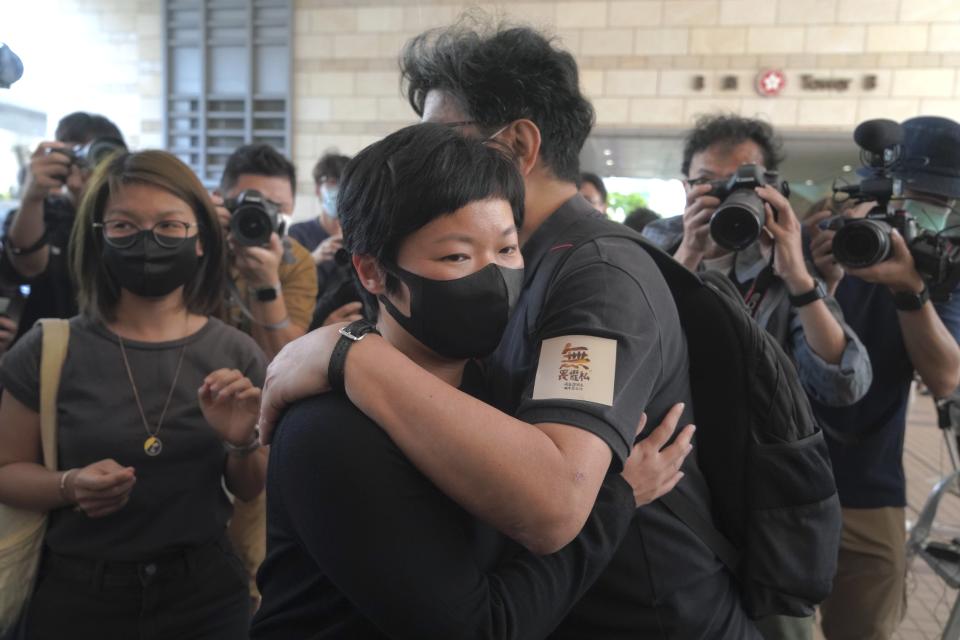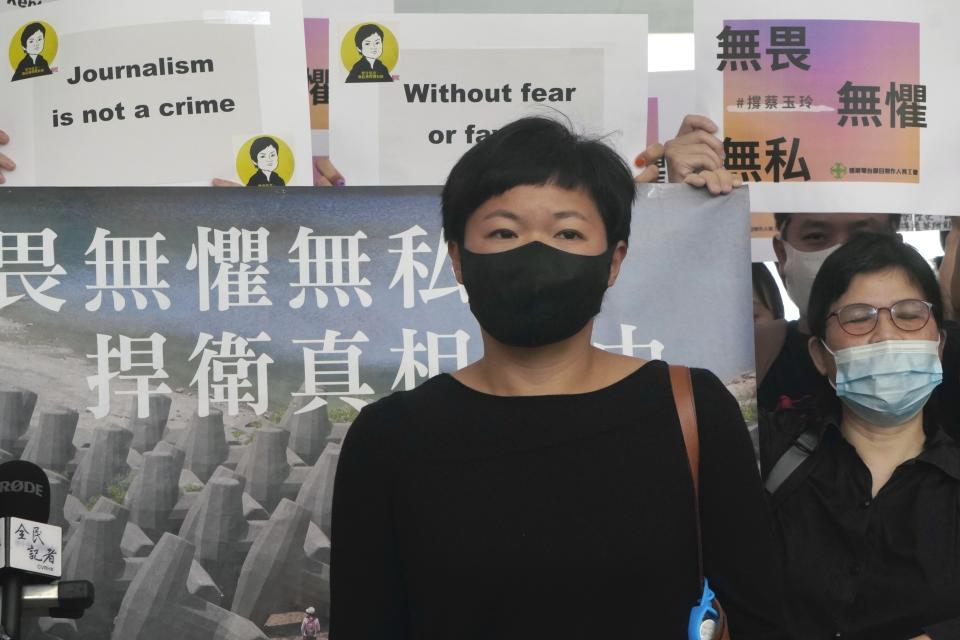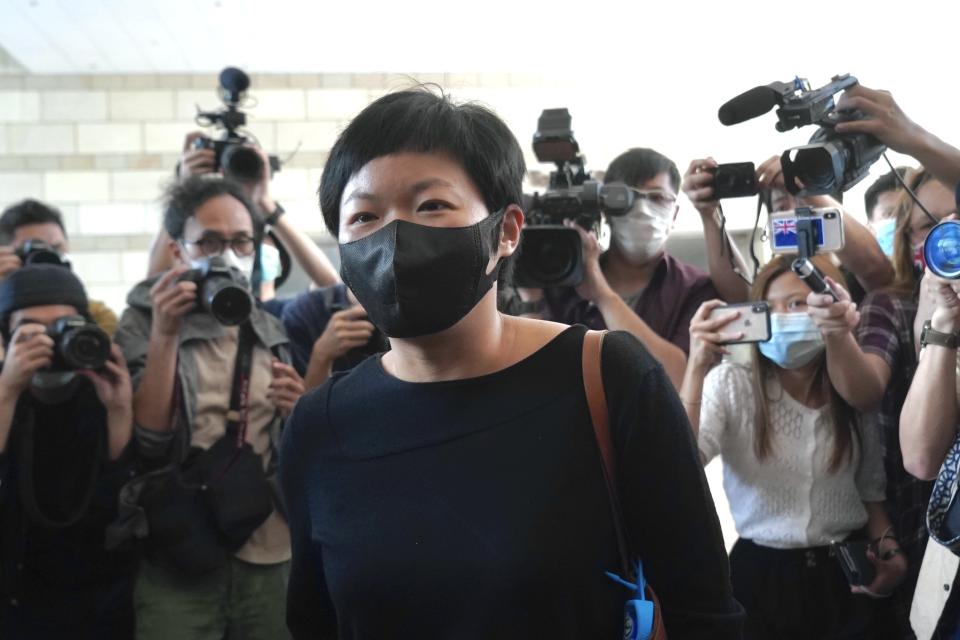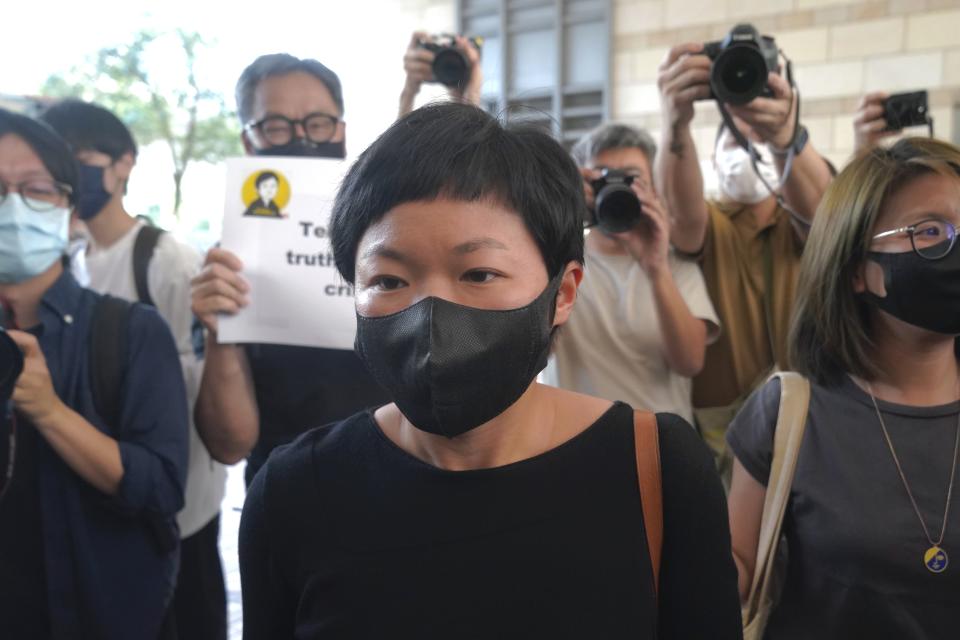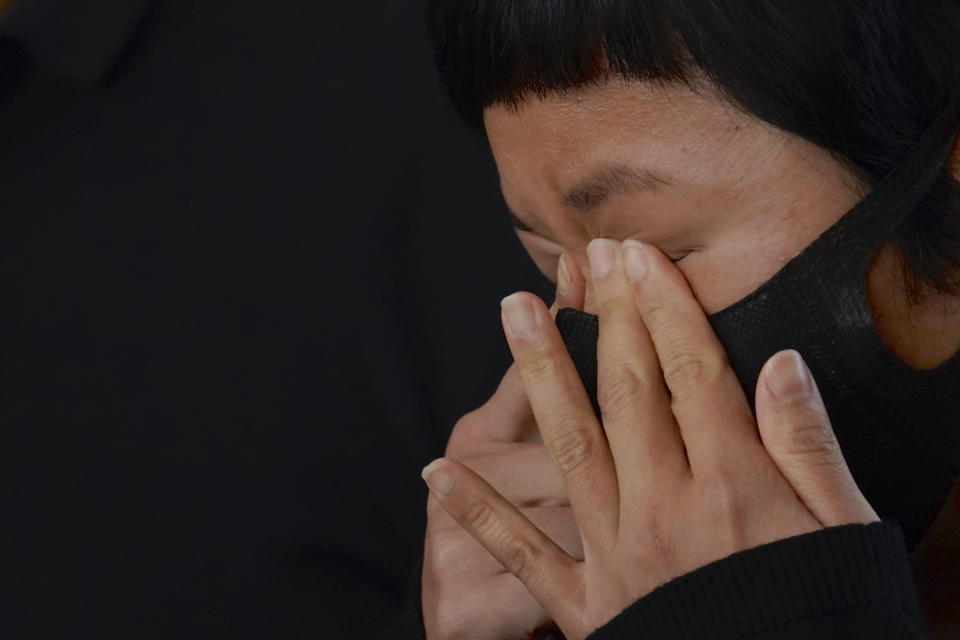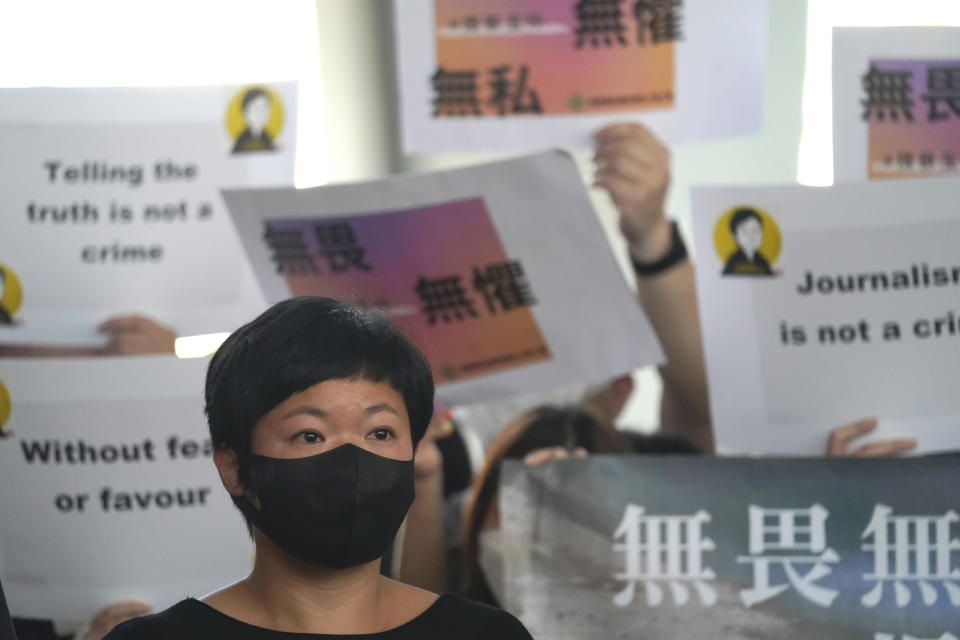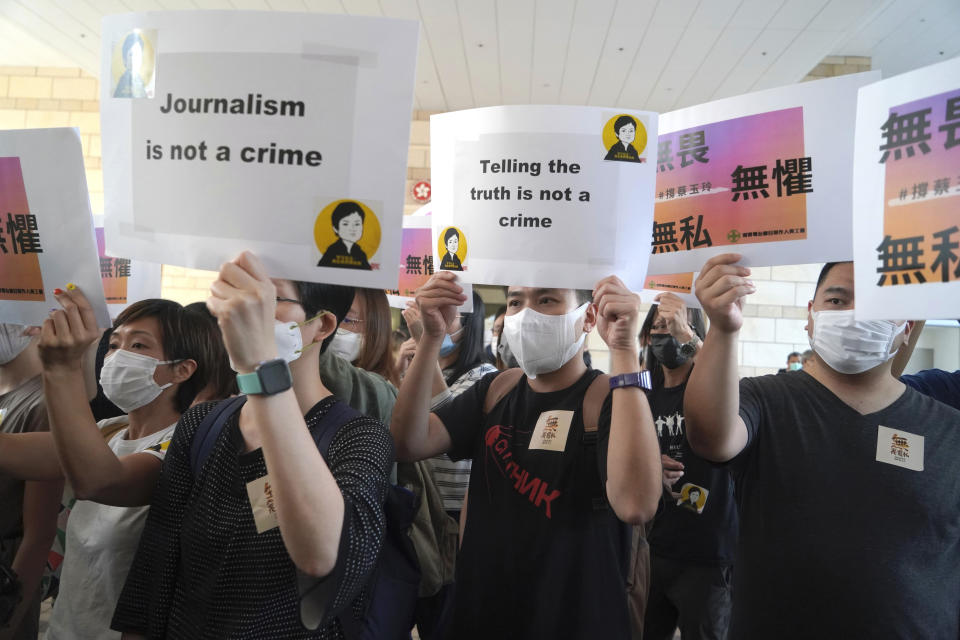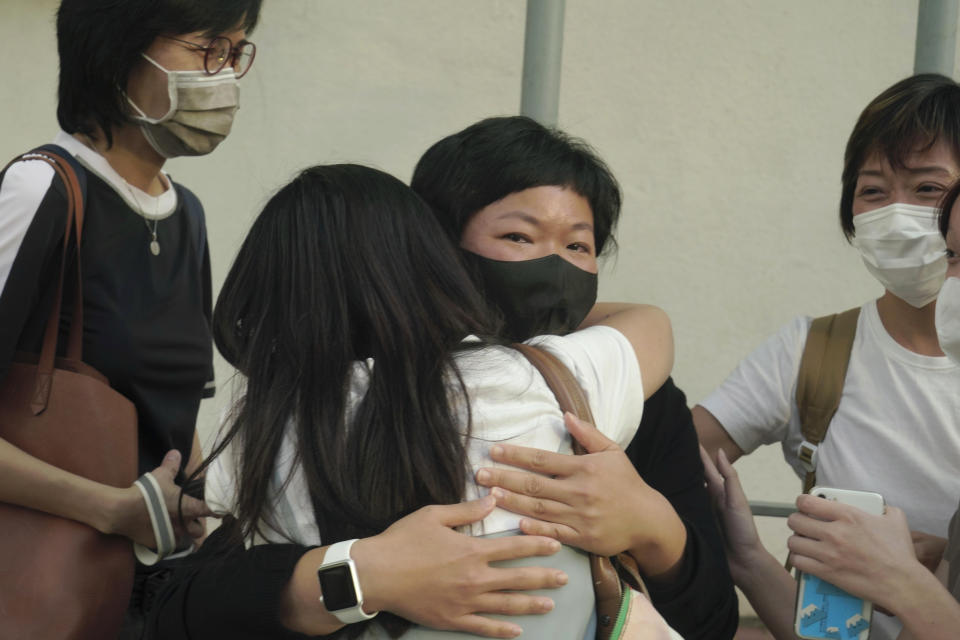Hong Kong journalist convicted for accessing public records
HONG KONG (AP) — A Hong Kong journalist was found guilty on Thursday of making false statements in obtaining information for an investigation into an attack on anti-government protesters, in the latest blow to press freedom in the city as authorities continue their crackdown on dissent.
Choy Yuk-ling, also known as Bao Choy, was arrested in November on charges of falsely declaring why she was obtaining license plate information from a publicly accessible database. She was attempting to track down the perpetrators of a violent attack by a mob of white-clad men on protesters in a subway station in 2019 for an investigative documentary for public broadcaster RTHK.
Principal Magistrate Ivy Chui said the Road Traffic Ordinance only allows the public to obtain vehicle ownership records for transport or traffic-related matters, legal matters, or for vehicle purchases.
She said Choy declared in her online application that she would use the information for “other traffic and transport related issues.” The application does not provide an option for journalistic research.
Choy, a freelancer affiliated with RTHK, pleaded not guilty. She was convicted on two counts of making false statements and fined 6,000 Hong Kong dollars ($775).
The documentary Choy was working on, titled “7.21 Who Owns the Truth,” also explored the behavior of Hong Kong police during last year’s anti-government protests. Police were accused of not intervening during the attack in the subway station in Yuen Long, a town in Hong Kong's New Territories.
“Today is a very dark day for all journalists in Hong Kong,” Choy said after the verdict. “Today is not just a verdict or ruling on me personally but a ruling on journalism in Hong Kong and a ruling on all journalists in Hong Kong.”
She described the outcome as “heartbreaking” and wiped away tears as she addressed reporters and her supporters.
“The ruling of the court today is very harsh,” she said. “They interpreted the search of public data in the most narrow perspective which has restricted the free flow of information in Hong Kong.”
She urged journalists to continue doing what they can to safeguard the values of a free press.
Supporters chanted “Journalism is not a crime” and “Stand with Bao Choy” as they held up placards in support of her and freedom of the press.
Chris Yeung, chairman of the Hong Kong Journalists Association, said Choy's use of a vehicle search to find out more about the attack demonstrates the media’s role as a watchdog.
“The relentless efforts of journalists to find out the whole truth of the Yuen Long attacks could clarify who should hold responsibility for what in the incident. This is what the fourth power is about,” Yeung said after the verdict.
“The government sent a reporter to the dock, she was found guilty and the fourth power is under threat. Press freedom in Hong Kong is dying,” he said.
Media groups have expressed concern that the crackdown on freedoms in Hong Kong, including the implementation of a tough new national security law, could be used against journalists reporting on sensitive issues.


